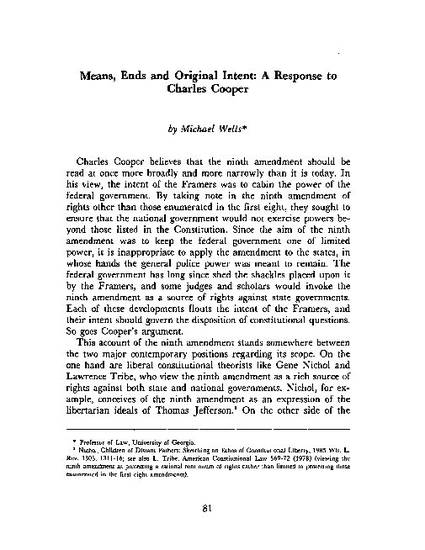
Charles Cooper believes that the ninth amendment should be read at once more broadly and more narrowly than it is today. In his view, the intent of the Framers was to cabin the power of the federal government. By taking note in the ninth amendment of rights other than those enumerated in the first eight, they sought to ensure that the national government would not exercise powers beyond those listed in the Constitution. Since the aim of the ninth amendment was to keep the federal government one of limited power, it is inappropriate to apply the amendment to the states, in whose hands the general police power was meant to remain. The federal government has long since shed the shackles placed upon it by the Framers, and some judges and scholars would invoke the ninth amendment as a source of rights against state governments. Each of these developments flouts the intent of the Framers, and their intent should govern the disposition of constitutional questions. So goes Cooper's argument.
Cooper's complaint about these developments differs from mine, and the difference must be stressed. In my view, our society would be better off with a weak national government. Cooper's criticism, on the other hand, is based on the belief that Congress and the Supreme Court have breached their duty to adhere to the intent of the Framers. For him, the Framers' intent is the guiding principle of constitutional interpretation; even if we are better off with a strong national government, that government is illegitimate because it contravenes the intent of the Framers.
Available at: http://works.bepress.com/michael_wells1/3/
